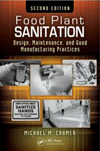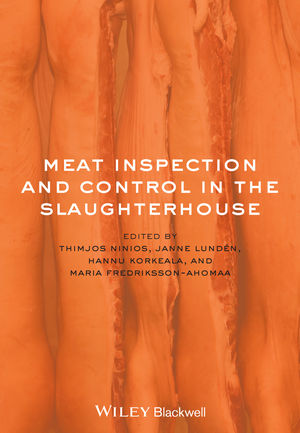Special Report: Food Safety
Cold chain maintenance and inspection interventions
The operative word in cold chain is “cold” – so adequate temperature control capacity is key.

Photo credit: Mettler Toledo
A key consideration for meat and poultry processors is designing and maintaining a storage and warehousing food safety system.
Meat and poultry processors and distributors shipping products should assess and implement measures that will ensure the sanitation and safety of products from initial shipment through delivery to other destinations.
The operative word in cold chain is “cold” – so adequate temperature control capacity is key.
Maintaining consistent optimal temperature of the product as it is coming out of production and moving into the temperature-controlled supply chain is essential.
“Ensuring that the product is at the right temperature before it gets into cold storage mitigates issues and ensures the integrity of the product during storage and downstream distribution,” said Ben Medearis, Americold vice president of business development-protein.
In some cases, he said, storage temperatures aren’t achieved until the product is received into the warehouse.
“In these cases, processes such as blast freezing or slow freezing are used to reach the optimal storage and distribution temperature zones,” Medearis said. “It is critical that clear and concise standard operating procedures are in place for maintaining product integrity and food safety requirements.”
Medearis added that it is important to ensure that workers handling the product understand proper handling and storage procedures, including temperature monitoring, sanitation compliance, documentation, and traceability requirements.
Processors need to be aware of the overall condition of the cold storage facility storing the product to identify trouble spots that could negatively impact the cold chain integrity.
“This includes cleanliness, condition of the refrigeration system, redundancy of the refrigeration in case of condenser malfunction, and knowledge of the safety procedures to ensure product integrity in the case of a refrigeration leak (i.e. ammonia),” Medearis said. “It’s also a good idea to ask the cold storage facility to provide results of third-party audits such as SQF or BRC. Low audit scores are always a leading indicator of potential issues. It’s also helpful to have a clear understanding of what products are being stored in the same general area. Cross-contamination of various products can impact the integrity of certain products, especially if stored with allergens, such as eggs, dairy or peanuts”.
Foreign material detection
While keeping products properly chilled helps prevent microbial threats, the possibility of foreign materials contamination requires detection interventions for potential threats such as metal fragments.
“Metal detection is ideal when looking for very small metal contaminants in bulk or packaged products,” said Sarrina Crowley, marketing communications manager for Mettler Toledo. “Fresh meat and poultry can exhibit product effect, which can interfere with a metal detector’s capability of inspection. A metal detector would also be ideal in situations where very small slivers of aluminum could be present, as it is a very conductive yet non-dense metal.”
Because X-ray inspection operates by analyzing density variations, it is not affected by the conductivity of a product.
“X-ray systems can inspect for all types of metal as well as stone, glass, dense plastics and some bone,” Crowley said. “They can be used for pumped meat and poultry, and can also be placed at final packaging, where they can find any dense contaminants and also identify any defects/malformed product even inside closed packages.”
Vision inspection is important for proper labeling, to ensure the contents of labels is correct, that the label is present and not skewed, she said.
For processors looking to get the most benefit from their investment in inspection and detection equipment, Crowley suggests some questions to consider:
- Are the systems easy to use so that operators can learn quickly?
- Are there lockable/password-protected reject bins available?
- Are there options for upgrades versus buying brand new if needed?
- Does the supplier offer systems of all technologies and multiple inspections in one unit?
- If there is minimal space on the production line, does the supplier offer full-service support including local field service and 24/7 telephone support?
Looking for a reprint of this article?
From high-res PDFs to custom plaques, order your copy today!
.png?height=96&t=1647275041&width=96)







